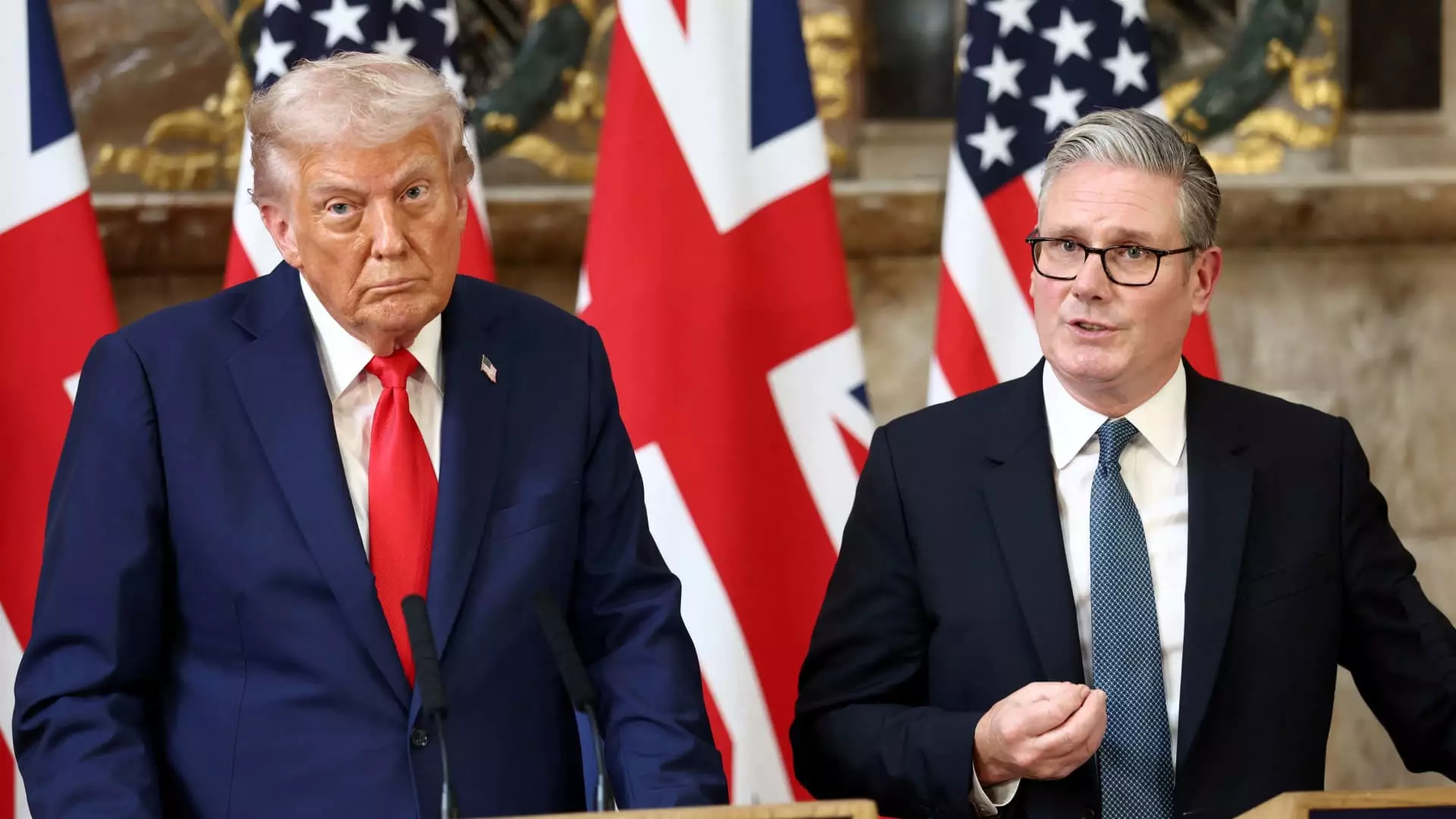In the grand theater of economic diplomacy, few acts capture attention quite like the announcement of billions pouring into a nation’s economy. During Donald Trump’s state visit to Britain, a spectacle unfolded: a dramatic unveiling of investment commitments by U.S. corporations, with the giant Blackstone claiming the spotlight with a staggering vow of nearly $135 billion. At face value, this appears as a significant vote of confidence in the UK’s economic future, but a closer look reveals a complex web of promises riddled with uncertainties and short-term ambitions more thanlasting sustainable growth.
The proclaimed investment, which is spread over a decade, appears as a grand gesture designed to dazzle both markets and political constituents. Yet, such figures are not indicative of immediate impact. Promises of future capital injection tend to fudge the reality of actual funds deployed, especially when spread across multiple asset classes like real estate, infrastructure, and private credit. It is a common tactic in high-stakes corporate politics, where numbers are manipulated to create an illusion of vitality in a sluggish economy. The question is whether this confidence is rooted in genuine optimism about Britain’s long-term prospects or merely a strategic maneuver to sway opinion and attract further investment without immediate accountability.
The Flawed Narrative of Optimism
While signals of large-scale investment are often celebrated, they often serve as distractions from deeper structural issues plaguing the UK economy. Post-Brexit Britain continues to grapple with political uncertainty, a stalling growth trajectory, and questions surrounding public finances. The fall in foreign direct investment from £22.9 billion to a mere £1.3 billion in 2023 starkly underscores the cracks beneath the veneer of economic resilience. This dismal backdrop renders the Blackstone commitment more a hopeful illusion than a concrete catalyst for revival.
The notion that significant investment from Blackstone could “revitalize” the UK economy conveniently ignores the complexities of economic reinvigoration. High levels of announced commitments do little to address fundamental issues—namely, a fractured political landscape, a sluggish policy environment, and a declining manufacturing sector. Public and private sectors sorely need genuine structural reforms rather than grandiose financial pledges. There’s an inherent risk in placing too much faith in corporate promises, especially when these commitments are designed more for optics than immediate action.
The Mirage of Market Confidence
The cautious optimism expressed by market analysts like Mark Preskett suggests that while Blackstone’s pledge might signal some faith in Britain’s potential, the reality is far more tentative. Investor sentiment remains divided; many view the UK as an unfavorable or uncertain destination due to Brexit-related disillusionment and economic fragility. Consequently, the Blackstone announcement is viewed as a contrarian move—an attempt to stand apart from the prevailing gloom and demonstrate a willingness to invest despite widespread doubts.
Yet, the skepticism surrounding these figures holds weight. Promises to invest over £100 billion are hopeful estimates, not tangible transactions. The implicit assumption that such a vast sum will be actively deployed within the country ignores the natural delays, regulatory hurdles, and strategic recalculations that typically accompany enormous investments. Moreover, with a timeline extending a decade, expecting immediate transformations from these commitments is naïve at best.
Equally concerning is whether the lion’s share of this capital will find its way into the UK or be diverted abroad through corporate restructuring or strategic reallocations. Pledges made at the government level often serve political objectives first, economic objectives second. As Duncan Edwards pointed out, promised funds are not tangible dollars until they are actually invested—a nuance often lost in the frenzy of headlines.
The Reality Behind the Promise
Behind the glossed-over spectacle lies an uncomfortable truth: investor confidence in Britain remains fragile. Local companies, foreign investors, and policy-makers must confront the reality that substantial investment inflows have dried up due to persistent uncertainty. The Blackstone pledge, while potentially inspiring, offers little reassurance that immediate economic revival is imminent.
Moreover, the uncritical acceptance of such mega-figures fosters a distorted perception of Britain’s economic health. It risks creating a false sense of security, encouraging complacency among policymakers who might interpret grand promises as a substitute for robust internal reforms. Without concrete action—policy adjustments, regulatory stability, and investment in innovation—the narrative of a bright future remains a lofty illusion.
The potential ripple effects of Blackstone’s announced commitment might catalyze some activity, but they should not be mistaken for a sweeping turnaround. The UK needs more than aspirational figures; it requires a deep and genuine overhaul that addresses core vulnerabilities, rather than relying solely on external capital commitments that, in reality, might never fully materialize. Until then, the grand declarations of investment serve more as political and corporate fireworks than as the bedrock of economic resilience.


Leave a Reply